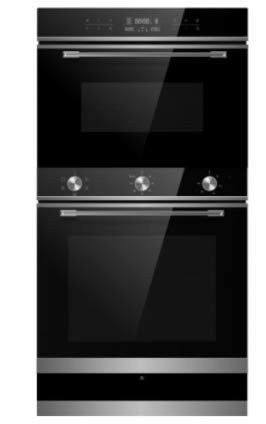Understanding Hobs and Ovens: A Comprehensive Guide for Cooking Enthusiasts
The kitchen is frequently considered the heart of the home, where cooking developments come to life. 2 necessary components of any kitchen are the hob and the oven. While they are both vital for cooking and cooking, numerous homeowners might not totally comprehend the differences, functionalities, and different types readily available in the market today. In this short article, we will check out these home appliances in information, helping you make informed decisions for your cooking requirements.
Tabulation
- What is a Hob?
- 1.1 Types of Hobs
- 1.2 Benefits of Different Hob Types
- What is an Oven?
- 2.1 Types of Ovens
- 2.2 Benefits of Different Oven Types
- Selecting the Right Hob and Oven for Your Kitchen
- Often Asked Questions (FAQs)
- Conclusion
What is a Hob?
A hob, typically called a cooktop, is a cooking surface area that you put cookware on to prepare food. It includes a range of heating components and is frequently set up on counter tops. In contemporary kitchen areas, hobs are available in numerous styles, innovations, and functionalities.
1.1 Types of Hobs
There are several kinds of hobs available in the market:
| Type | Description |
|---|---|
| Gas Hob | Utilizes gas burners for cooking, offering exact temperature control. |
| Electric Hob | Runs using electrical heating elements, typically seen in solid or glowing kinds. |
| Induction Hob | Uses electromagnetic fields to heat pots and pans straight, promoting energy efficiency. |
| Ceramic Hob | Functions a smooth glass top, using electric coils below the surface area. |
| Strong Plate Hob | Conventional electric hobs with exposed metal plates that warm up. |
1.2 Benefits of Different Hob Types
Gas Hobs:
- Quick heating and cooling.
- Visual flame control for precise cooking.
Electric Hobs:
- Even heating; ideal for simmering and boiling.
- Easy to clean up, specifically flat surfaces.
Induction Hobs:
- Energy-efficient as just the pot warms up.
- Safety features, such as automatic shut-off.
Ceramic Hobs:
- Attractive aesthetic appeals with a smooth surface.
- Even surfaces for easy cleaning.
Strong Plate Hobs:
- Cost-effective and resilient.
- Great for fundamental cooking needs.
What is an Oven?
An oven is a kitchen appliance utilized for baking, roasting, and broiling food. Ovens can be standalone systems or built into kitchen cabinets, supplying various cooking techniques that can enhance or change active ingredients.
2.1 Types of Ovens
Similar to hobs, there are several types of ovens, each with its benefits:
| Type | Description |
|---|---|
| Traditional Oven | Operates with heating components, ideal for baking. |
| Stove | Utilizes fans to circulate hot air, cooking food equally and quickly. |
| Microwave Oven | Cooks food utilizing electromagnetic radiation; suitable for reheating. |
| Steam Oven | Utilizes steam to prepare food, protecting wetness and nutrients. |
| Wall Oven | Built into the wall, providing convenience and aesthetic appeal. |
2.2 Benefits of Different Oven Types
Conventional Ovens:
- Simple to utilize with no complicated settings.
- Versatile for different cooking techniques.
Convection Ovens:
- Faster cooking times due to air circulation.
- Enhanced browning and crisping for baked goods.
Microwave Ovens:
- Quick cooking or reheating of food.
- Energy-efficient for low-volume cooking.
Steam Ovens:
- Health-conscious cooking that keeps nutrients.
- Exceptional for baking bread and cooking vegetables.
Wall Ovens:
- Convenient positioning; conserves area.
- Less bending needed to access cooking meals.
Selecting the Right Hob and Oven for Your Kitchen
When choosing a hob and oven, factors such as area, cooking design, and personal preferences ought to be thought about. Here's a simple guide to assist you pick:
Factors to Consider
- Cooking Needs: Evaluate your cooking routines. Do you often bake, or is stovetop cooking more prevalent?
- Area Availability: Measure your available kitchen area. Some hobs or ovens may require more room than others.
- Fuel Type: Decide between gas and electric, based upon availability and personal choices.
- Spending plan: Determine what you're prepared to spend and discover options within that range.
Quick Tips
- Focus on Efficiency: Look for energy-efficient models to decrease long-term expenses.
- Read Reviews: Explore user evaluations to gather opinions on efficiency and reliability.
- Seek advice from Professionals: Seek advice from kitchen design professionals when planning your layout.
Regularly Asked Questions (FAQs)
1. What is the distinction between a hob and an oven?
A hob is a cooking surface normally for stovetop cooking, while an oven is an enclosed area utilized for baking, roasting, and broiling food.
2. Can I utilize any pot on an induction hob?
No, induction hobs require magnetic pots and pans. Stainless-steel and cast iron pots work, however non-magnetic products like aluminum won't.
3. How do stove differ from conventional ovens?
Convection ovens employ fans to flow hot air for even cooking, whereas traditional ovens do not have this function.
4. Is it possible to have both a hob and oven as a single system?
Yes, there are range cookers that integrate a hob and an oven within one appliance, providing a thorough cooking service.
5. How do I tidy my hob and oven?
Many hobs and ovens have suggested cleansing approaches depending upon their materials. It is suggested to consult the maker's guidelines for the best practices.
Understanding the differences between hobs and ovens is essential for anybody seeking to optimize their kitchen space or improve their cooking abilities. By understanding the numerous types, their advantages, and how to choose the ideal ones for your requirements, cooking can become a more enjoyable and effective experience. Whether click for more info are a skilled chef or a novice cook, the best combination of hob and oven can raise your culinary creations to brand-new heights.

